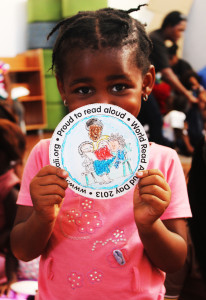 All children deserve the opportunity to learn to use reading and writing meaningfully in their lives – to become literate! A lifelong literacy journey can begin with small but exciting steps as your children experience the thrill of getting lost in a story, or the power of expressing their own ideas in writing.
All children deserve the opportunity to learn to use reading and writing meaningfully in their lives – to become literate! A lifelong literacy journey can begin with small but exciting steps as your children experience the thrill of getting lost in a story, or the power of expressing their own ideas in writing.
Learning to read and write is not just about learning new skills. Although it does involve learning skills, literacy is so much more than this. It is about learning to use reading and writing in real and important ways. And, being literate allows us to:
* use books and other forms of writing to learn from – we can learn new things from what other people write.
* explore and communicate what we think, feel and know.
* enjoy the richness of language as we read, and so learn to use language in new and different ways.
* find out about other people’s experiences and learn from them, even when we’ve never met them because they may have lived long ago, or they live in far-away places.
* discover different ways of seeing the world.
When we help children become readers and writers, we give them the key to a worldwide community. But, this does not happen overnight and we need to help spark their literacy, and then keep it going by inspiring and encouraging them. Here are some of the ways you can help.
* Be a role model. Your children learn from your example. They need to see you using reading and writing in different ways in your daily life.
* Provide materials. You can’t learn to read if you don’t have anything to read, and you can’t learn to write if you don’t have anything to write with or on! Children need to be able to easily find books that interest them, and paper, pencils and crayons to write and draw with.
* Offer help. Children need people who are able to read and write to help them until they can read and write on their own.
* Take an interest. Every time children read and write, encourage them by showing an interest in what they are doing.
* Read aloud. When children are motivated to read and write, they stand a greater chance of being lifelong readers and writers! Reading aloud to them as often as you can, teaches them the power of print, stimulates their curiosity and opens up their minds to facts, fantasy, and much more.

